by amgranger | Dec 7, 2018
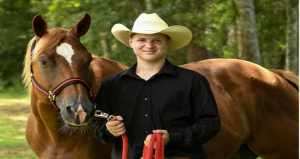
Photo Credit: Melissa Loper
Warren Loper is an award-winning member of the Boots and Buckles 4-H Horse Club. Earlier this year, the Jackson County 4-H’er won awards at both the regional and state 4-H horse shows. What makes Warren unique is that he is also hearing impaired. But Warren is very much a “people person” and doesn’t like feeling different from anyone else. His mother, Melissa Loper, recently talked to me about his 4-H experience and how it has played a role in helping Warren build confidence and achieve success regardless of his challenge.
At two weeks old, Warren was diagnosed as being completely deaf due to improper functioning hair follicles in the Cochlea. At 15 months of age, he received a Cochlear implant that was activated at 18 months of age.
Melissa said Warren didn’t like the Cochlear implant at first because it allowed for all sounds to be heard at once. He had to learn how to drown out background sounds. The implant had to be turned down completely and then slowly raised to a level that was tolerable. His ability to handle the implant increased as he got older. Melissa says there are times when Warren would rather not be able to hear.
When asked what role 4-H has played in helping Warren build confidence and feel included, Melissa shared the following:
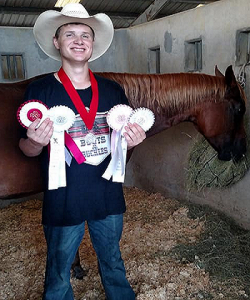
Photo Credit: Julie Hughes
“Being involved in the 4-H Horse Project has helped him so much. He has come out of his shell. His club leader, Lindsay Kiefer, has spent hours working with Warren and is so patient with him. He lives for helping other children, and it makes him feel important. One key thing is that no one on our team treats him like he is different than they are. As a mother, that is so important to me. Seeing the improvements he has made in his social skills and seeing him develop into an amazing rider warms my heart.”
One of the key components of 4-H is developing life skills and providing a safe and inclusive environment for all youth regardless of their physical or mental conditions. 4-H allows all youth the opportunity to explore their areas of interest. For Warren, the 4-H horse project allows him to learn the valuable life skills that come from raising and showing a horse and also allows him to exhibit mastery of learned riding skills in competitive events.
FUN FACTS…
Youth involved in the 4-H Horse Project learn more than just the science behind feeding and caring for a horse, and how to properly ride. Youth also compete in contests such as horse bowl, demonstrations, public speaking and art. Youth participating in this projects use their horse as a tool to increase their knowledge and enhance their life skills making them more productive young people. To find out more about the horse project in your county, contact your local UF/IFAS Extension office.
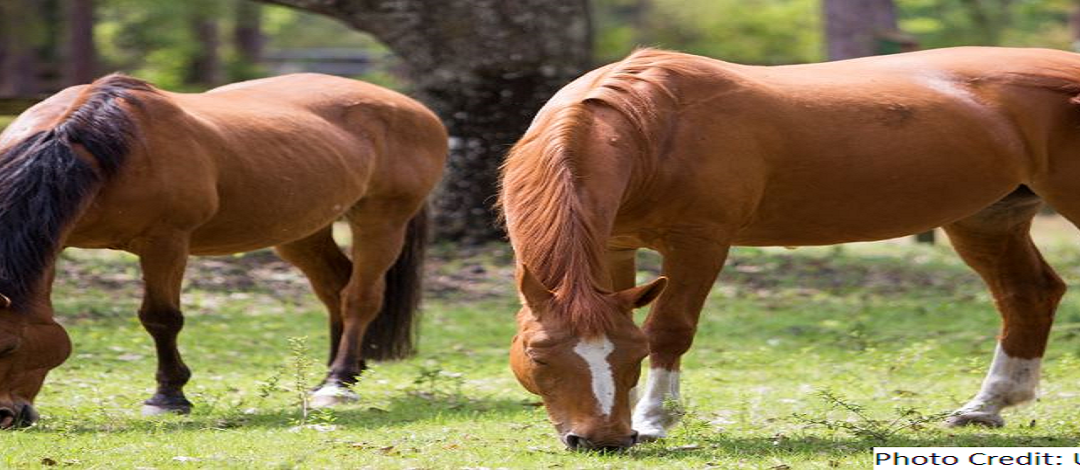
by amgranger | Sep 28, 2018
Be Prepared and Have a Plan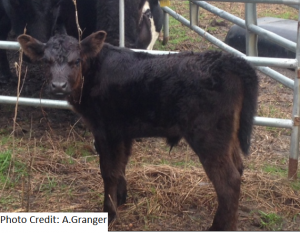
This time last year, we were helping our 4-H friends all over Florida recover from Hurricane Irma. Hurricane season has been quiet in Florida so far, but that doesn’t mean we need to let our guard down – we still have two more months of hurricane season.
So,what would you do if you didn’t have electricity? How will you care for your 4-H project animals? Do you have an evacuation plan? Answers to these questions become major issues when dealing with disasters.
Disasters can be natural/weather-related, man-made or accidental. Regardless of the type, it’s important to be prepared and have a plan for you and your animals.
Plan for Your Animal’s Safety
Whether you evacuate or shelter in place, here are a few considerations:
- Be ready to leave once the evacuation is ordered.
- Evacuate animals as soon as possible.
- Your project animal won’t be able to stay with you in a shelter like a dog or a can.
- Know where safe livestock facilities are in your area or along your evacuation route.
- If you can’t evacuate, decide if you’re keeping animals confined to a barn or turning them out into pastures.
- Barn confinement may become dangerous and take away the animal’s ability to protect themselves.
- Pastures should be at least one acre in size with no potential hazards (barbed wire, power-lines, polls or items that can be picked up by the wind).
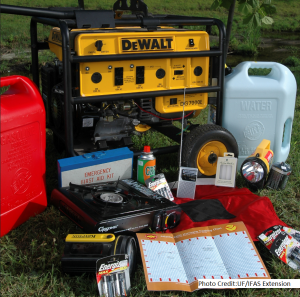 Disaster Preparedness for Livestock – Why Livestock Owners Need to Be Prepared
Disaster Preparedness for Livestock – Why Livestock Owners Need to Be Prepared
The Florida Department of Agriculture and Consumer Services (FDACS) has some suggested guidelines about preparing livestock and horses for disasters:
- Check with your local humane organization, extension office or local emergency management agency to read about your county disaster response plans.
- Determine safe evacuation routes for trailers and livestock.
- Prepare a Farm Disaster Kit and Basic First-Aid Kit. Remember, supplies during or after the disaster may be in short supply, or roadways may be blocked. Keep kits up-to-date, keep them on-site and in your vehicle.
- A vaccination and test records (Coggins, health certificates, etc.)
- A list of all animals, where they are located on the farm and feeding instructions/records
- Sanitation items, cell phone, flashlights, portable radios and batteries.
- Have feed, water, handling equipment, tools, veterinary supplies and a generator (with fuel) on hand if possible.
- Make a list of emergency numbers – veterinarian, neighbors, state veterinarian, animal shelter, county extension office,local volunteer organizations and someone outside of the disaster area.
- Make sure you have proof of animal ownership. Have temporary ID supplies on hand like permanent markers and plastic bands that are safe, durable and visible. ID should include your name, address, and telephone number.
- Poultry need access to high areas to perch if you’re in an area susceptible to flooding. Provide access to clean water and food.
- Remove barbed wire or other fencing so animals can move to areas of safety during flooding or high winds.
- Store water in large containers (enough for a week) suck as troughs, swimming pools or boats
- Secure items that might be picked up and thrown by the wind like pieces of metal, troughs, tanks or trailers.
- Ensure there is safe shelter, fencing or pens.
- Keep animals in groups they’re used to where they are securely contained and protected from the elements.
Resources:
For more information about 4-H, contact your local UF/IFAS County Extension Office. If you are an adult or teen with skills or knowledge you’d like to share, ask about becoming a 4-H volunteer!
by amgranger | Apr 20, 2018
Expanding Horizons and Teaching Work Ethics
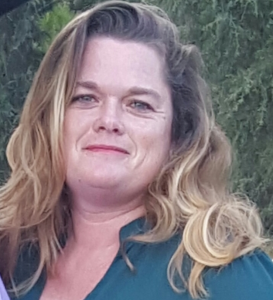
Jackson 4-H Volunteer Terri Hardin.
Jackson County 4-H volunteer club leader Terri Hardin wears many hats. From working with youth at Golson Elementary School to working on her family ranch in Grand Ridge, Terri is one busy lady! Somehow though she manages to find time to meet with the youth in the Country Bumpkins 4-H Club she started five years ago. The club meets monthly at a community center in Cypress in East Jackson County.
Terri moved to Jackson County from Oxford, Texas in 2005 and is married to Jerry Hardin. They have two daughters and two sons. Daughter Gerri participated in 4-H and FFA and is now pursuing a Bachelor’s Degree in Art at Florida State University. Daughter Faith is a sophomore at Marianna High School and is also in 4-H and FFA. Son Sheldon is a supervisor at a lumber company and son Tyler manages a recycling facility in Arizona. Terri is also expecting her first grandchild in August.
Terri did not participate in 4-H or FFA growing up. However, since coming to Florida, along with her work with Jackson County 4-H, she has volunteered with the FFA Chapter of Sneads, helped start the Grand Ridge FFA Alumni and served as president for three years. She helped reactivate the Marianna FFA Alumni and currently serves as president.
The youth in Terri’s 4-H club have opportunities to explore any project they want. Their projects range from poultry and livestock production, exhibition and judging to geo caching. Terri also makes sure that her youth know the value of giving back. They do multiple community service projects each year that include tree planting, cleanup of local parks, collecting books and collecting food for local food pantries. Terri and her club contributed clothing for adults and children during Jackson 4-H’s efforts to help victims of Hurricane Irma in 2017.
When asked what drives Terri to do volunteer work 4-H she shared, “The need to help children expand their point of views, hopefully instill good work ethics, get them outdoors, and show them there is a much bigger world out there.”
Terri’s inspiration is the need she sees to help youth and adults who are less fortunate and to improve the community she lives in. Terri’s 4-H volunteer work meets the needs of those who might not have that opportunity otherwise. That much is evident in the number of youth who have been a part of Terri’s 4-H club and their accomplishments.
Terri shared that she has seen evidence of growth and development in the youth she has worked with over the past five years in their maturity, their ability to get along with others and the fact that they have stepped outside their comfort zones by exploring and expanding their fields of interest.
Terri sees the need for 4-H volunteers in her community and schools. She suggests that anyone interested in 4-H consider volunteering at a school to see the needs that young people have and the guidance they need to succeed in today’s world.
Jackson 4-H is fortunate to have Terri working with youth and adults to help “make the best better”!
4-H offers a broad spectrum of projects and activities to serve a variety of interests, skills, and knowledge. If you or someone you know would like to learn more about 4-H, contact your local Extension Office.
#FL4hVOL
Facebook- https://www.facebook.com/florida4h/
Instagram- https://www.instagram.com/florida4h/?hl=en
Twitter- https://twitter.com/florida4h?lang=en
by amgranger | Mar 29, 2018
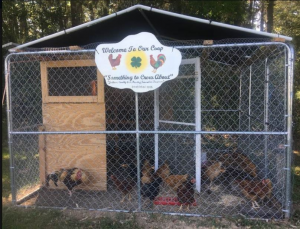
Many Extension Offices offer Cooperative Coops for youth who live in areas that are not zoned for poultry – UF/IFAS Jackson County Extension 4-H Program
Photo Credit: Angel
If you have been entertaining the idea of adding chickens to your personal “flock”, then we have some news for you! Not only would you be adding a sustainable practice at your home, your youth would have amazing opportunities to learn, develop valuable life skills and explore opportunities in 4-H. Youth from all walks of life (urban and rural) are involved in 4-H poultry projects. Here’s the scoop on getting started with backyard coops:
- Location– the first thing you need to find out is whether or not your location is zoned for poultry and whether or not there are any building restrictions. If there are no restrictions on your property, you will want to select a location that is relatively flat, has good drainage, access to electricity and water, and some natural shade if possible. If you do live in a restricted area, contact your local UF IFAS County Extension Office– many offices have cooperative coops where youth can participate in the poultry project, even if they can’t have their own backyard coop.
- Goal– Next, you need to consider what your goal is. Do you plan to produce just eggs or are you considering producing your own meat? Are you more interested in showing your chickens? How big of an operation are you planning?
- Coop Size– Are you planning to allow your birds to free-range or stay in an enclosed pen? Birds that are allowed to roam free during the day do not need as large a coop. If you are planning to keep your birds cooped up to keep them safe from neighborhood dogs or wildlife, you will need a larger coop. Also, the number of birds and breeds you want to have will impact your coop size. Here are the general rules of thumb when it comes to coop size:
- Heavy breeds– such as Australorp, Barred Rock, or Buff Orphington need 4 square feet of space if allowed out to forage during the day, but 10 square feet of space per bird if they are kept in the coop.
- Light breeds– such as Leghorn, Araucana or Silkies need 3 square feet of space per bird if allowed to forage, but 71/2 square feet of space per bird if kept in the coop.
For more information on selecting breeds, check out this article: Which Breeds are Best for Backyard Poultry.
- Coop Style– Chickens have been around for thousands of years so they are pretty resilient, but you still need to consider giving them proper shelter and protection from the elements and predators. Make sure that your coop has the capability to repel predators that fly, dig or crawl. Chickens are susceptible to birds of prey such as hawks and owls as well as predators on the ground including snakes, opossums, raccoons, coyotes, dogs and cats. There are many styles to choose from and you can spend a lot or a little, depending on your budget or your skills as a carpenter! Links to a few example coop plans are provided in the resources below. Many hardware and feed supply stores have “coop kits” for sale that are easy to put together. Generally, these coops are for small numbers of birds and are easy to remove should you change your mind about having a backyard flock later. The coop shown above was constructed with a 10 x 10 chain-link dog kennel and a canvas kennel cover. The roof and sides were laced with poultry wire which was also buried 8-10 inches in the ground around the perimeter. An enclosed area with laying boxes was constructed out of scrap lumber, an old screen door and a roll of window screen. All of the components give the birds protection from the elements and predators. Make sure that your coop site has access to electricity and water.
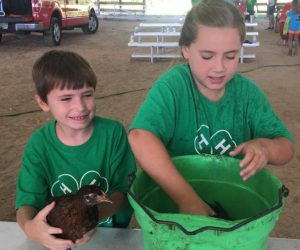
Chick Chain Participants
Photo Credit: A. Granger, UF/IFAS Jackson County Extension
If you have decided to incorporate some of the 4-H activities such as embryology or Chick Chain, you will be starting with day-old chicks that will require a little different living environment, at least until they can keep themselves warm and are big enough to be put on the ground. Regardless of the age of the birds, make sure that you are providing adequate amounts of fresh feed and clean water every day.
Once your birds are mature enough to lay eggs or be used for meat, you will enjoy having a great source of protein and a valuable teaching tool for youth. Learning skills such as record keeping and responsibility are just two of the skills that come to mind. Not to mention opportunities in learning to show or exhibit birds, learning about poultry and meats judging, earning scholarships in the 4-H Tailgate Cookery Contest and developing entrepreneurial skills in producing eggs or meat for your family or others.
There are multiple opportunities in 4-H poultry project. If you are interested in participating, either as a youth member or an adult volunteer, contact your local UF IFAS County Extension Office or visit http://florida4h.org.
Resources:
Backyard Flocks
Florida 4-H Chick Chain Project
Florida 4-H Poultry Project Page
Florida 4-H Embryology Program
4-H Poultry Judging
Life Skill Development Related to Participation in 4-H Animal Science Projects
by amgranger | Oct 5, 2017
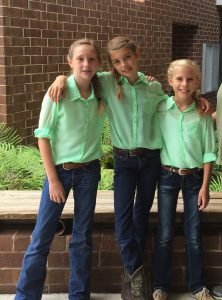 From its beginning, the 4-H program has used a system of clubs and competitive activities to promote learning and the development of specific skills of 4-H members (Ladewig & Thomas, 1987). Sometimes competition is viewed negatively. Florida 4-H does not believe that competition is beneficial for youth under the age of eight, but for older youth, competition can help promote the development of life skills. When you break it down, competition is simply the process of comparing skills (Midura & Glover, 1999). Competition provides opportunities for youth to master and demonstrate life skills that can be used in the real world. For example, livestock judging participants learn more than animal science- they learn about the ethical treatment of animals, how to communicate and critical thinking.
From its beginning, the 4-H program has used a system of clubs and competitive activities to promote learning and the development of specific skills of 4-H members (Ladewig & Thomas, 1987). Sometimes competition is viewed negatively. Florida 4-H does not believe that competition is beneficial for youth under the age of eight, but for older youth, competition can help promote the development of life skills. When you break it down, competition is simply the process of comparing skills (Midura & Glover, 1999). Competition provides opportunities for youth to master and demonstrate life skills that can be used in the real world. For example, livestock judging participants learn more than animal science- they learn about the ethical treatment of animals, how to communicate and critical thinking.
Weber and McCullers (1986) stated that “young men and women who traditionally attain the highest levels of achievement in the 4-H program are typically very successful ‘in other aspects of life as well.” Other studies have also shown that competition helps to decrease juvenile delinquency, foster responsible social behavior, stimulate creativity, motivate young people to set goals, prepare them for the competitive world and gain important life skills.
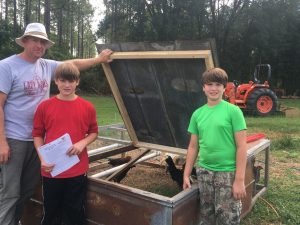 Competitions involving judging are beneficial educational tools used to prepare youth for the workforce, regardless of their chosen careers. Former participants have learned to become team players, which is essential to their success and efficiency in the workplace. Teambuilding skills are an essential element of success at any age.
Competitions involving judging are beneficial educational tools used to prepare youth for the workforce, regardless of their chosen careers. Former participants have learned to become team players, which is essential to their success and efficiency in the workplace. Teambuilding skills are an essential element of success at any age.
In a 2003 study conducted by the University of Idaho to determine development of beneficial life skills associated with past participants in 4-H Livestock and Horse Judging programs, over 97% of the judging alumni indicated that the Idaho 4-H judging experience positively influenced their personal success. The participants indicated gaining the following life skills:
- Ability to verbally defend a decision
- Animal industry knowledge
- Decision-making
- Oral communication
- Organizational skills
- Problem solving
- Team building
- Self-confidence
- Self-discipline
- Self-motivation
Overall, 4-H participants perceive that 4-H competitions are very valuable to them in terms of teaching responsibility, building self-confidence and self-worth, and preparing them to face challenges in a competitive world. Florida 4-H offers many opportunities to help youth develop through competitive events:
- 4-H record books
- Public speaking
- Demonstrations, or show and tell presentations
- Graphic design
- Photography
- Judging competitions
- Shooting sports
- Animal shows
- Fair exhibits
To learn more about competitive opportunities in 4-H, or how you can become involved as a coach or project leader, contact your local UF IFAS County Extension Office or visit http://florida4h.org.
Related Article- The Impact Ag Judging Had on Me
Resources:
https://www.joe.org/joe/2002june/a5.php
https://www.joe.org/joe/2006december/rb3.php
http://countryfolks.com/4-h-ffa-competitions-benefit-students-livestock-and-communities/
https://www.joe.org/joe/2002april/rb5.php
https://www.joe.org/joe/2005april/rb5.php










